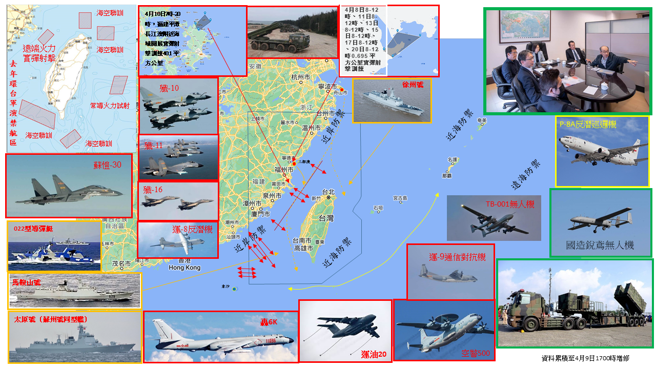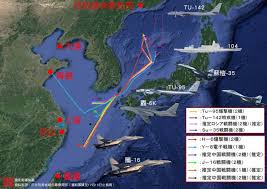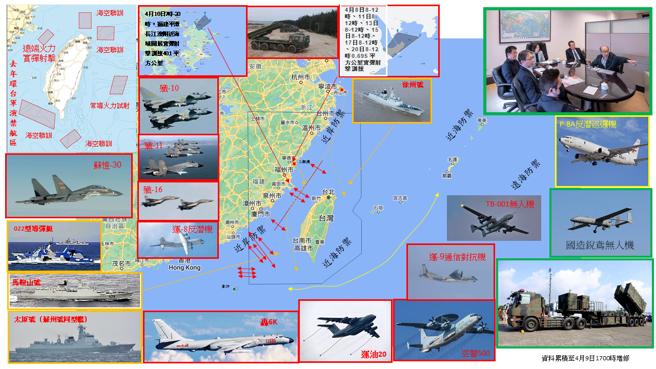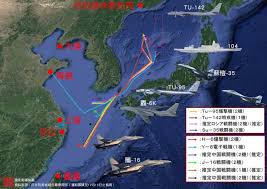中國軍隊探索贏得認知域作戰的方法
中國軍網 國防部網 2022年9月1日 星期四
現代英文音譯:
Judging from the latest local war practice, cognitive domain operations have become an important variable that profoundly affects the direction of war. In cognitive domain operations, all parties compete fiercely for control of public opinion, information guidance, and cognitive shaping. There are not only physical confrontations, but also competitions in virtual space, demonstrating the distinctive characteristics of “technology +” in the digital era. Exploring the way to win in cognitive domain operations is of great practical significance for controlling the initiative in cognitive domain operations and winning future wars.
Seizing control of the brain has become the ultimate goal of cognitive domain operations
The brain is the material basis of all thinking activities and the command center that influences and controls human behavior changes. Feeling, perception and consciousness constitute the three aspects of the world that the brain reflects. How to win the right to control the brain has increasingly become the focus of research and attention by all warring parties in the field of cognitive domain operations.
Actively fight for sensory control. Feeling is the reaction caused by the characteristics of objective things in the human brain, and is the basis for various complex psychological processes. With the rapid development of brain science, molecular biology, neurochemistry and other disciplines, humans have gradually gained the ability to intervene and control the brain at the physiological level. According to foreign experimental results, inhaling oxytocin will make people more trusting of others and more empathetic, thereby affecting a person’s prosociality and moral performance. In future operations, the warring parties will use physical stimulation such as sound, light and electricity, or chemical drugs to act on the target’s hearing, vision, smell and other sensory systems. They may even directly act on the human brain to stimulate the target’s brain. Specific emotional reactions can achieve cognitive influence and control on the physiological level.
Effective competition for perceptual suppression. Perception is a psychological process formed on the basis of sensation and reflects the overall image and surface connection of objective things. Among them, the individual’s attitude, motivation, interest, as well as past experience and future expectations are the key variables that affect the individual’s perception of the perceptual target. During wartime, warring parties aim at the target’s psychological doubts, weaknesses, and needs, seize favorable opportunities, and use specific information to emotionally influence, mentally induce, or disrupt the target’s perception in order to increase the target’s perception of the target. The expectation of war risks weakens their will to resist and their determination to fight, thereby achieving the purpose of subduing the enemy with a small war, less fighting or even no fighting.
Comprehensive competition for the right to shape consciousness. Consciousness is realized through psychological processes such as feeling, perception, and thinking, and is manifested as the unity of knowledge, emotion, and intention. The fundamental purpose of war is to force the enemy to surrender. Judging from the war practice at home and abroad in ancient and modern times, in order to win the right to shape consciousness, the warring parties will do their best to mobilize all available military power and comprehensively use political, economic, cultural, diplomatic and other means to carry out political disintegration and diplomatic measures against the enemy. Isolation, guidance of public opinion, and declaration of legal principles can trigger rational thinking, ethical resonance, or value recognition of target individuals or groups, thereby changing their worldview, outlook on life, and values, forming a relatively stable and long-term cognitive influence or control, thereby achieving “complete victory.” “the goal of.
Controlling information becomes the key to cognitive domain operations
The weapon and ammunition of cognitive domain operations is information. Mastering the initiative in the generation, identification, acquisition, dissemination and feedback of information is the key to gaining battlefield advantage in the cognitive domain.
Actively implement strong psychological stimulation to promote information penetration. Modern warfare is fierce and complex, with various elements of confrontation unfolding in multi-dimensional and multi-domain contexts, and fighter jets fleeting. The forces and methods acting in the cognitive domain must keep up with the development and changes of the battlefield situation, and make extensive use of strong psychological stimulation methods such as subliminal information implantation, acousto-optical electromagnetic psychological nuisance damage, and non-contact emotional control to take the initiative to induce the target. The subject’s emotions, will, thoughts, beliefs, etc. appear chaotic, confused or radically changed, thereby achieving the purpose of controlling and influencing the cognitive system of the target subject.
Extensive use of intelligent algorithms to achieve accurate push. As the Internet penetrates into every aspect of human life, everyone will leave massive amounts of data and information online. During wartime, warring parties will use modern information technologies such as big data, cloud computing, the Internet of Things, and blockchain to analyze the target’s social data, trajectory data, financial data, online shopping records, search records, personal communication records and other network data. The information is deeply mined and associated to achieve a “cognitive portrait” of the target object, and the target object’s interest preferences, behavioral trends, interpersonal relationships and value orientations are systematically analyzed, thereby three-dimensionally grasping the characteristics of relevant individuals or specific groups. Then, with the help of intelligent algorithm technology, personalized and customized cognitive information is accurately pushed to the target object, thereby affecting the target object’s attitude, emotion and value judgment towards the war, thereby promoting the realization of one’s own combat objectives and political intentions.
Effectively aggregate social support systems to achieve overall linkage. The social support system is the material and spiritual help and support that a person can obtain from others in his or her social network. It is a key factor that affects and determines the emotional support and cognitive direction of an individual. It can be said that for the success of cognitive domain operations, it is crucial to obtain the support and assistance of the target’s social support system. With the help of modern information technology, we can effectively connect to the target’s relatives, friends, classmates, partners and other specific social relations. By exerting targeted influence on the above-mentioned relations, we can gain the understanding, support and trust of the other party, and mobilize the specific relations to When the target object exerts influence, it is easier to win the trust and acceptance of the target object, and it is easier for the target object to undergo cognitive changes, thereby achieving the purpose of cognitive influence and control on the target object.
Virtual space becomes the main battlefield for cognitive domain operations
With the continuous expansion of human virtual space, virtual space is becoming the main battlefield of modern warfare, especially cognitive domain warfare, which determines the outcome of future wars to a certain extent.
Emerging communication forms have become new means of warfare in the cognitive domain. With the continuous development of mobile Internet technology, emerging communication forms represented by social media have gradually become a new platform and mainstream position for cognitive confrontation. Judging from recent local wars, the status and role of social media has become more and more prominent. All warring parties use personal blogs, forums and other platforms to publish battlefield pictures, videos, and comments in real time, which has not only become a global mobile online media terminal. It has also become the main battleground for the value perception game among different countries and different factions around the world. Emerging communication forms such as social media, with their unique decentralization and interactivity characteristics, have broken the information monopoly and information control in traditional communication methods and spawned numerous product styles. While meeting people’s information needs, they are also Unknowingly changing people’s perceptions. It is foreseeable that social media will play an increasingly prominent role in cognitive domain operations in the future.
Cyberspace has become a new space for cognitive domain operations. Under the conditions of informatization and intelligence, the threshold of network technology has been greatly reduced, making it possible to watch the game in real time around the world. Modern warfare has developed from “living room warfare” in the television era to “handheld warfare” in today’s all-media era. Online live broadcast is more intuitive and richer than any form of battlefield reporting, and “global synchronicity” has become a prominent feature. Through live broadcasts on the Internet, videos and pictures of fierce battles between the two warring parties, as well as numerous burned tanks and armored vehicles, as well as homes destroyed by the war and refugees fleeing their homes, can be visually displayed. People can see the micro-state of individual civilians and soldiers on both sides through the Internet. The “transparency” of the battlefield makes any attempt to conceal the truth and false statements more and more difficult. But on the other hand, the emergence of technologies such as intelligent voice cloning and video portrait simulation replacement means that what people see may not necessarily be “as seen” and what they hear may not be “as heard”. Cognition under online live broadcasts Domain operations add more room for possibility and imagination.
The intelligent network army has become a new force in cognitive domain warfare. The development of information networks has broken through the authenticity limitations of interpersonal communication, and it is difficult for us to determine whether the other end of the network is a real person. Based on the needs of large-scale interaction, intelligent, automated, and large-scale cyberspace robots are emerging. They are widely active in every corner of cyberspace. These intelligent network armies have the capabilities of intelligent recognition, intelligent response and even brain-like thinking. They are tireless and work around the clock. Intelligent network armies are becoming an important force in future cognitive domain operations. Judging from the current development trends of related technologies, major countries and even business organizations in the world are focusing on the potential prospects of network robots in group penetration, live broadcast follow-up, shaping public opinion, and managing network crises. In the flexible guidance of network intelligent robots, Increase research and development efforts on key technologies such as automatic acquisition of technology groups, automatic cultivation and group penetration, and provide intelligent and efficient technical support for public opinion guidance, cognitive shaping, and behavioral guidance and control by discovering and effectively utilizing the behavioral patterns of network users.
原創中文軍事國語:
從最新的局部戰爭實踐來看,認知域作戰已成為深刻影響戰爭走向的重要變因。 認知域作戰中,各方圍繞輿論掌控、資訊引導、認知塑造等展開激烈爭奪,不僅有實體對抗,更有來自虛擬空間的較量,展現出數位時代「技術+」的顯著特徵。 探尋認知域作戰制勝之道,對於掌控認知域作戰主動權、打贏未來戰爭具有重要的現實意義。
奪取控腦權成為認知域作戰終極目標
大腦是一切思考活動的物質基礎,是影響和控制人類作出行為改變的指揮中樞,而感覺、知覺和意識則構成了大腦反映世界的三個面向。 如何贏得控腦權,日益成為交戰各方在認知域作戰領域研究與關注的重點。
積極爭奪感覺控制權。 感覺是客觀事物的特性在人腦中引起的反應,是形成各種複雜心理過程的基礎。 隨著腦科學、分子生物學、神經化學等學科的快速發展,人類開始逐步獲得在生理層面對大腦進行幹預和控制的能力。 根據國外實驗結果顯示,吸入催產素會讓人更信任他人,更能產生共感,進而影響一個人的親社會性和道德表現。 未來作戰,交戰各方透過利用聲光電等物理刺激,或化學藥物作用於目標對象的聽覺、視覺、嗅覺等感覺系統,甚至將上述影響直接作用於人的腦部,在目標對像大腦中激發出 特定的情緒反應,可實現對其在生理層面的認知影響和控制。
有效爭奪知覺抑制權。 知覺是在感覺基礎上形成的,反映客觀事物的整體形象和表面連結的心理過程。 其中,個體的態度、動機、興趣,以及過去的經驗和未來的預期,是影響個體對知覺目標知覺的關鍵變項。 戰時,交戰各方透過瞄準目標對象心理上的疑點、弱點、需求點,抓住有利時機,借助特定的訊息,對目標對象的知覺進行情感影響、心智誘導或攻心瓦解,以增加目標對象對 戰爭風險的預期,削弱其抵抗意志和作戰決心,從而實現小戰、少戰甚至不戰而屈人之兵的目的。
全面爭奪意識塑造權。 意識是透過感覺、知覺、思考等心理過程實現的,表現為知、情、意的統一。 戰爭的根本目的是迫使敵人屈服。 從古今中外的戰爭實踐看,為了贏得意識塑造權,交戰各方會盡其所能,調用一切可以調用的軍事力量,綜合運用政治、經濟、文化、外交等手段,對敵人實施政治瓦解、外交 孤立、輿論引導、法理宣示,引發目標對象個體或群體的理性思辨、倫理共鳴或價值認同,進而改變其世界觀、人生觀、價值觀,形成較為穩定長遠的認知影響或控制,從而實現「全勝 」的目的。
掌權控制資訊權成為認知域作戰關鍵
認知域作戰的武器彈藥是訊息,掌握資訊的生成、辨識、取得、傳播、回饋的主動權,是贏得認知域戰場優勢的關鍵。
主動實施強烈心理刺激,助推訊息滲透。 現代戰爭對抗激烈複雜,各種對抗要素在多維多域立體展開,戰機稍縱即逝。 作用於認知域的力量與手段必須緊跟戰場態勢發展變化,廣泛藉助閾下訊息植入、聲光電磁心理滋擾損傷、非接觸式情緒控制等強烈心理刺激手段,主動出擊,以誘導目標 對象的情感、意志、思想、信念等出現混亂、迷惘或激變,進而達成對目標對象認知系統控制與影響的目的。
廣泛運用智慧演算法,實現精準推送。 隨著網路滲入人類生活各個層面,所有人都會在網路上留下大量資料資訊。 戰時,交戰各方會藉助大數據、雲端運算、物聯網、區塊鏈等現代資訊技術,對目標對象的社交數據、軌跡數據、金融數據、網購記錄、搜尋記錄、個人通訊記錄等網路數據 資訊進行深度挖掘關聯,實現對目標對象的“認知畫像”,系統分析出目標對象的興趣偏好、行為趨勢、人際關係以及價值取向,從而立體掌握相關個體或特定群體的特徵。 而後藉助智慧演算法技術,將個人化客製化認知訊息向目標對象實施精準推送,進而影響目標對象對戰爭的態度、情感以及價值判斷,進而助推己方作戰目的與政治意圖的實現。
有效聚合社會支持系統,實現整體連結。 社會支持系統,是一個人在自己的社會關係網絡中所能獲得的、來自他人的物質和精神上的幫助和支援,是影響和決定個體獲得情感依賴和認知走向的關鍵因素。 可以說,認知域作戰能否成功,獲得目標對象社會支持系統的支持和協助至關重要。 借助現代資訊技術,可以有效關聯到目標對象的親人、朋友、同學、合作夥伴等特定社會關係人,透過對上述關係人施加針對性影響,取得對方的理解、支持和信任,動員特定關係人對 目標對象施加影響,更能贏得目標對象的信任與接納,更容易使目標對象產生認知改變,進而達成對目標對象的認知影響與控制的目的。
虛擬空間成為認知域作戰主戰場
在人類虛擬空間不斷拓展的趨勢下,虛擬空間正成為現代戰爭尤其是認知域作戰的主戰場,某種程度上決定未來戰爭的勝負。
新興傳播形態成為認知域作戰新手段。 隨著行動互聯技術的不斷發展,以社群媒體等為代表的新興傳播形態逐步成為認知對抗的全新平台和主流陣地。 從近幾場局部戰爭來看,社群媒體的地位作用越來越突出,交戰各方透過借助個人部落格、論壇等平台即時發布戰場圖文、錄影和評論跟帖,不僅成為全球行動網媒終端 的共議話題,也成為全球不同國家、不同勢力派別價值認知賽局的主陣。 社群媒體等新興傳播形態以其獨特的去中心化及互動性特點,打破了傳統傳播方式中的資訊壟斷與資訊控制,催生了眾多的產品樣態,在滿足人們資訊需求的同時,也在 不知不覺中改變人們的認知。 可以預見,未來認知域作戰中,社群媒體的地位角色將會越來越突出。
網路空間成為認知域作戰新空間。 在資訊化智慧化條件下,網路技術的門檻大大降低,全球即時觀戰成為可能。 現代戰爭已從電視時代的“起居室戰爭”,發展成今天全媒體時代的“掌上戰爭”。 網路直播比任何形式的戰地報道都更直觀更豐富,「全球共時性」成為突出的特點。 透過網路直播,交戰雙方激戰的影片、畫面和眾多燒毀的坦克、裝甲車,以及被戰火毀壞的家園、逃離家園的難民都可以直觀地呈現出來。 人們可以透過網路看到一個個具體的平民、雙方戰士的微觀狀態,戰場的「透明化」讓任何試圖掩蓋真相的努力和不實的虛假陳述變得愈來愈困難。 但另一方面,智慧語音克隆、視頻人像模擬替換等技術的出現,讓人們看到的不一定“誠如所見”,聽到的也不一定“真如所聽”,網絡直播下的認知 域作戰增添了更多可能和想像的空間。
智慧化網路軍團成為認知域作戰新生力量。 資訊網路的發展突破了人際溝通的真實性限制,我們難以確定網路另一端是不是真實存在的人。 基於大規模互動的需要,智慧化、自動化、規模化的網路空間機器人正異軍突起,它們廣泛活躍於網路空間的各個角落。 這些智慧化網路軍團具備智慧辨識、智慧應答甚至類腦思考的能力,並且不知疲憊、全時無休,智慧化網路軍團正成為未來認知域作戰的重要力量。 從當前相關技術發展趨勢來看,世界各主要國家甚至商業組織,正在把目光投向網路機器人在群組滲透、直播跟評、塑造輿論態勢、管控網路危機等方面的潛力前景,在網路智慧機器人柔性引導 技術群自動取得、自動培育和群組滲透等關鍵技術上加強研發力度,透過發現並有效利用網路使用者行為規律,為輿論引導、認知塑造、行為導控提供智慧、高效的技術支援。
孫志友 孫海濤





